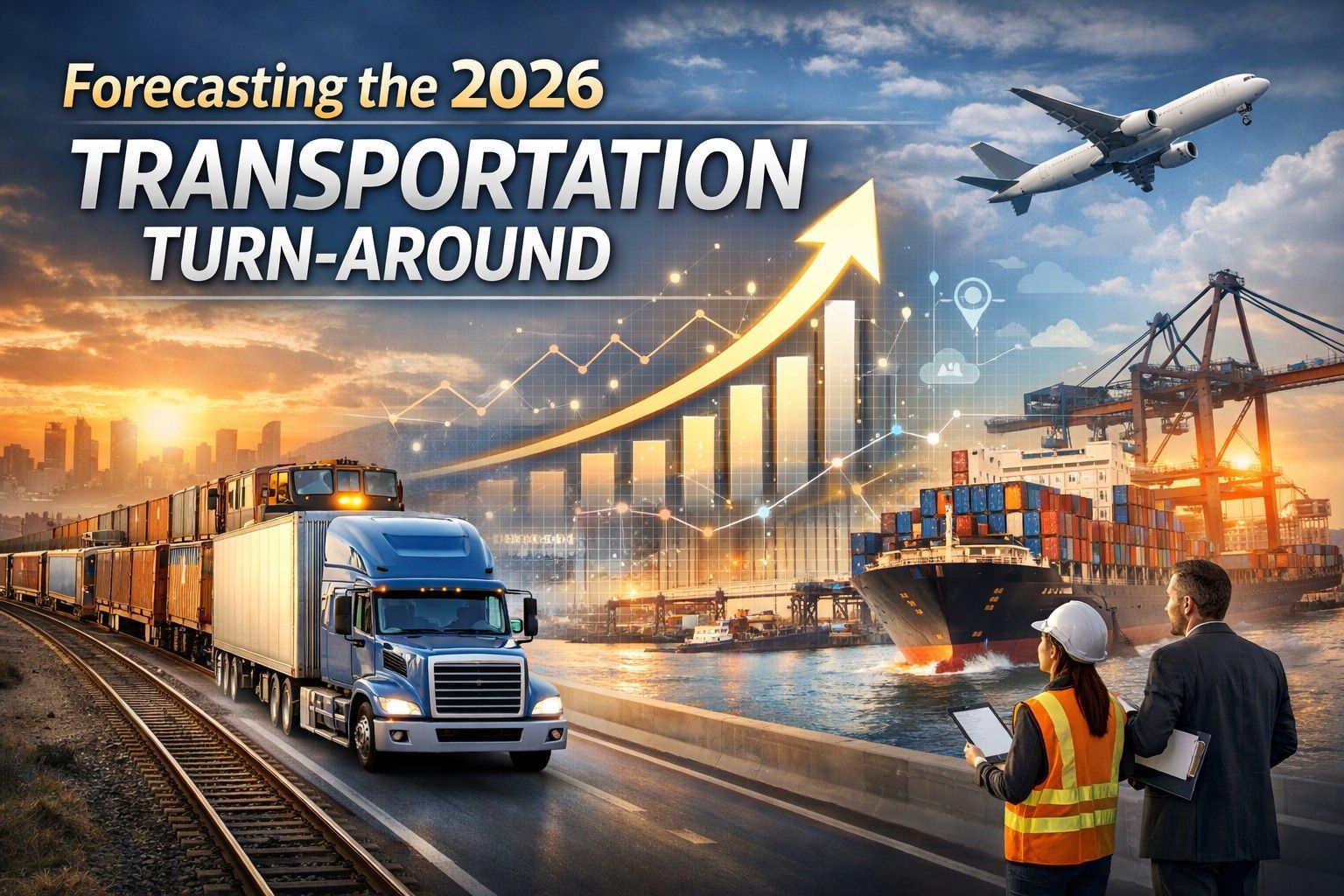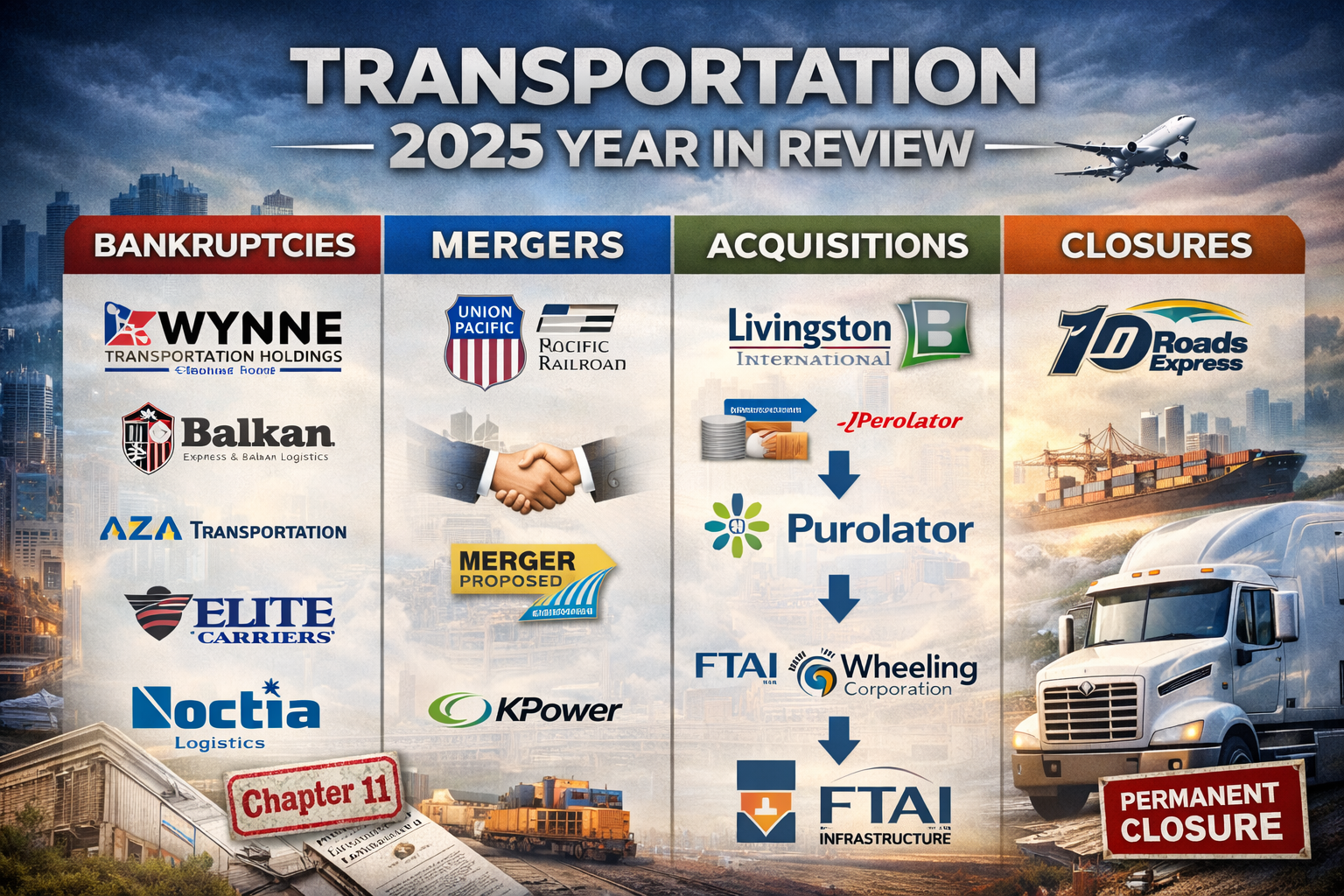Due Diligence Basics: Tax Risks in Transportation M&A Deals
Share this Article:
Mergers and acquisitions in the transportation industry require more than financial review. Tax exposure can impact deal value, post-close operations, and long-term return on investment.
Without proper review, buyers may inherit liabilities that affect cash flow and compliance. Tax due diligence uncovers potential risks tied to sales tax, payroll obligations, fuel usage, and local reporting.
For transportation companies, the complexity multiplies across jurisdictions and tax types. Addressing these risks early helps protect deal structure, pricing, and future planning.
Why Tax Due Diligence Matters in Transportation M&A
Transportation companies operate across state lines, manage large asset bases, and often face layered tax obligations. During an M&A transaction, these factors create significant tax exposure that can be overlooked without focused review. Tax due diligence provides visibility into the target company’s historical compliance, audit history, and unresolved liabilities.
Buyers need to understand how unpaid taxes, misclassified workers, or improper filings may carry over after the deal closes. These issues can delay integration, reduce cash flow, or require legal action. In some cases, the buyer becomes responsible for back taxes, penalties, and interest tied to previous operations.
Strong tax due diligence supports pricing decisions, reveals exposure before it becomes costly, and gives buyers more control in negotiations. For transportation deals, it also protects continuity and long-term operations.

Common Tax Risks in Transportation M&A Transactions
Tax exposure in transportation M&A deals often hides in areas not reviewed during standard financial diligence. Identifying these risks early helps prevent unexpected liabilities after closing.
Sales and Use Tax Exposure
Frequent transactions across states increase the risk of incorrect exemption use. If resale or exemption certificates are missing or invalid, the buyer may be responsible for unpaid tax and penalties.
Payroll and Employment Tax Risks
Worker misclassification and missing payroll filings are common issues. Buyers should confirm proper treatment of employees and contractors, along with accurate reporting of wages and tax deposits.
Fuel and Excise Tax Compliance
Inaccurate IFTA filings or unreported fuel use may lead to carryover liabilities. Buyers should review state fuel tax filings and confirm federal excise tax requirements, such as Form 2290, are current and complete.
Business Activity & Gross Receipts Taxes
Some states tax gross receipts instead of income. Missed or miscalculated filings in places like Ohio, Texas, or Washington can result in costly assessments if overlooked during due diligence.
Local Tax Obligations
Vehicle taxes, permits, and local business fees often vary. Reviewing payment history helps avoid complications tied to noncompliance at the city or county level.
Red Flags in a Target’s Tax History
Certain patterns in a company’s tax records can indicate future problems. Buyers should review audit activity, repeated late filings, and amended returns. These issues may reflect weak internal processes or inconsistent compliance.
Outstanding balances, payment plans, or tax disputes should be examined closely. Some liabilities do not appear in standard financial reports but can affect pricing or delay the closing process.
Missing fuel logs, payroll records, or exemption certificates may also lead to audit risk. Filing inconsistencies between jurisdictions can result in penalties or assessments down the line.
Taking time to review a target’s tax history helps reduce the chance of inheriting hidden liabilities. Identifying risk early allows buyers to adjust deal terms or walk away before costly problems surface.
The Role of Transportation-Specific Tax Expertise
Transportation companies face a wide range of tax rules that vary by state, locality, and activity. Standard due diligence often misses issues unique to this industry. Buyers need support from professionals who understand how fuel tax, mileage-based fees, permit costs, and equipment exemptions apply in real transactions.
An experienced transportation tax advisor can identify liabilities tied to IFTA reporting, asset sourcing, and multi-jurisdictional sales. They know where problems typically arise and how to verify tax compliance beyond basic financial checks.
This experience is especially valuable for companies operating across multiple states, managing fleets, or maintaining several operating authorities. Focused expertise helps buyers move quickly and avoid tax issues that might surface after closing.
Pre-Close vs. Post-Close: Timing Matters

Tax risk should be reviewed early in the M&A process, not after the deal is signed. Pre-close tax due diligence gives buyers the opportunity to identify problems, adjust purchase terms, or require corrective actions before finalizing the transaction. This step also helps in shaping representations, warranties, and indemnities tied to tax liabilities.
Post-close reviews can still be valuable, especially when prior access to records was limited. However, once the deal is complete, options may be limited. The buyer may have to absorb unexpected costs or spend time resolving past errors.
Conducting tax due diligence before closing supports better planning, smoother handoffs, and fewer disruptions. It also gives both parties more confidence in the transaction.
How Transportation Tax Consulting Supports M&A Transactions
Transportation Tax Consulting provides targeted support throughout the M&A process. Our team reviews the tax positions of transportation companies to identify risks, missed filings, and exposure areas that may affect deal value. We focus on the specific tax categories that matter most in this industry, including sales and use tax, fuel tax, payroll obligations, and multistate compliance.
We help buyers confirm that documentation is in place, verify registration is in key jurisdictions, and evaluate how prior activity aligns with current tax law. Our experience allows us to spot issues that general due diligence may miss.
For sellers, we offer pre-sale readiness reviews to clean up potential liabilities before going to market. For buyers, we deliver tax due diligence that supports smarter negotiations and better-informed decisions. Our involvement helps protect both financial outcomes and operational continuity.
Key Takeaways
Tax due diligence helps buyers uncover risks that affect pricing, timing, and long-term performance in transportation M&A deals. Common issues include unpaid sales tax, worker misclassification, fuel reporting gaps, and unfiled local taxes. These risks often go unnoticed in general reviews.
Transportation Tax Consulting provides the industry-specific insight needed to reduce risk and move forward with confidence.
Contact us today to schedule a consultation and protect your next transaction.
Share with Us:




